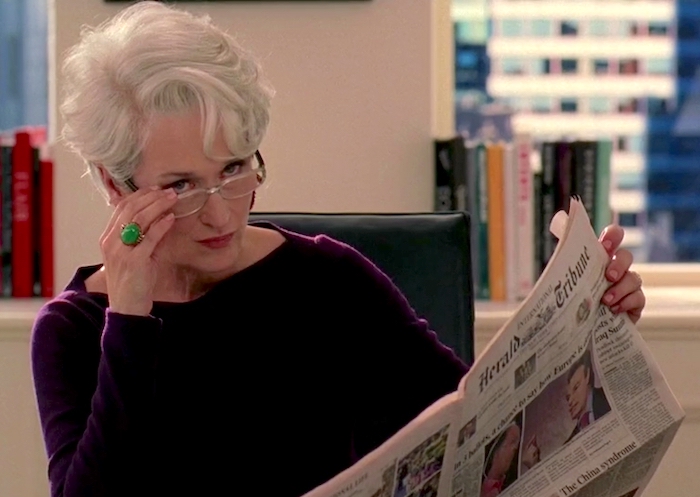Unpopular Opinion: You Shouldn’t Stop Apologizing

A couple of years ago, I ordered a stack of management books online. I was managing a small editorial team, and I wanted to learn what it took to be a better boss and employee. I’m generally a sensitive, emotional over-thinker, and I was worried those traits were getting in the way of being taken seriously at work. While some of the books proved to be useful (I don’t care if Silicon Valley took a dig at it — I really liked Radical Candor), I couldn’t stop running into the same advice: Start acting more like a man. Maybe it wasn’t phrased exactly like that, but the message was loud and clear. If I wanted to achieve career success, I apparently needed to be more bullish, exude confidence, and stop saying “sorry” so much in my emails — all supposedly antithetical to a woman’s approach to workplace communication.
It’s not just career books that make those suggestions, it was coworkers, bosses, and well-intentioned friends who’ve repeated these sentiments. I’ve seen leadership gurus on LinkedIn post aesthetically-pleasing and Instagram-ready quotes that tell us to abolish “lady phrases” like “I’m sorry,” and “I think,” because men don’t say these things and that these words hold women* back.
When we see quotes like “Carry yourself with the confidence of a mediocre white man,” it again perpetuates the idea that a man is the foundation, the default, the golden standard of “success” we need to emulate, even if we are making fun of it.
Articles like “It’s Time for Women to Stop Apologizing So Much,” “How Women Can Stop Apologizing And Take Their Power Back,” and “Ladies, Let’s Make a Resolution to Stop Saying Sorry” flooded my search engine results when I typed in “women saying sorry.” There are other “lady words” we apparently need to throw away forever. Former Google exec’s article crucifying the word “Just” went viral last year because she argued that it was a “permission” word that women used more often than men, and it was dismissive of their authority. Other words and phrases include “Actually,” “Does this make sense,” and “I was wondering.” Even overusing “Thanks!” is considered to be an offender. I’m also assuming my habitual “lol”s and “haha”s should probably be added to that list.
Instructing women what language to use when she communicates at work ties back to the suggestion that women need to act more like men, since men seemingly don’t have the same work vocabulary as women do. Studies like this one show women do, in fact, apologize more than men do, because men have a “higher threshold” for what they feel is offensive. But that doesn’t necessarily mean saying “sorry” or showing humbleness with words like “just” or “actually” is a bad thing, IMHO.
Too often do we glamorize the Miranda Priestly approach to communication: Brisk, cold, and blunt. I like using exclamation points. I err on the side of empathy.
Plus, what I think people are really trying to say is, “Act more like an asshole, because men do it all the time and that’s how they get ahead.” When we see quotes like “Carry yourself with the confidence of a mediocre white man,” it again perpetuates the idea that a man is the foundation, the default, the golden standard of “success” we need to emulate, even if we are making fun of it and being sarcastic. However we choose to create similes that compare our actions to the action of men, that, on its own, is drenched in its own patriarchal bullshittery.
The thing is: I don’t want to be an asshole. I don’t want to have to edit the way I present myself in order to be taken seriously, because I feel like I have been taken seriously. I don’t want to “act like a man,” because I think (yup) that the statement is sexist and undermines the power women hold to be good employees and leaders and managers. I’m a firm believer in treating people with compassion, and if I feel like saying “sorry” or “just” as a filler in a Slack message or real life, that doesn’t diminish my message. Too often do we glamorize the Miranda Priestly approach to communication: Brisk, cold, and blunt. I like using exclamation points. I err on the side of empathy. I’m okay with not sounding like an expert on a topic if I’m truly not. I’m fine with expressing vulnerability if I’m not familiar with something. Looking back at my communication worries, I’ve decided there’s no real reason for me to alter the way I present myself or my ideas if they’re done clearly and directly. If I’m not listened to or taken seriously, that’s a problem that goes far beyond typing “sorry” in a Slack message.
I’ve made peace with the fact that I will never, ever try to “act like a man” at work because that would mean I’ve been “acting like a woman.”
This is not to say gender inequality isn’t a huge issue in the workforce. Per Forbes, the number of women CEOs holding positions at the top 600 S&P companies is a measly 6 percent. The pay gap between men and women is still very much real, and the numbers look even worse for BIPOC women. It’s no wonder women are continuing to search for ways to shatter the glass ceiling and be treated the same way as men. But does eliminating “permission” words truly help pave the way forward?
I’m not here to propose a solution to institutionalized sexism and discrimination in the workplace, but I am here to say that I’ve made peace with the fact that I will never, ever try to “act like a man” at work because that would mean I’ve been “acting like a woman.” Obviously this binary thinking is problematic, to begin with, but it also communicates the message that “acting like a woman” is what you don’t want to do at work. How about, instead of “act more like a man,” we say “act more like a leader whom you admire,” or “act like the boss you’ve always envisioned yourself to be”? Be firm when you think it’s appropriate, not when you think it makes a convincing performance. Above all, be decisive, thoughtful, and kind.
I’ll continue leaning into my feelings because that’s what has worked for me as an employee, boss, and person. Being open and authentic is something that should be valued, not discounted as weakness.
Sorry, but I’m not sorry.
*When using the word “woman” I’m talking about people who self-identify as women.
Gina Vaynshteyn is an editor and writer who lives in LA. You can find more of her words on Refinery29, Apartment Therapy, HelloGiggles, Distractify, and others. If you wanna, you can follow her on Instagram or Twitter.
Image via IMDB
Like this story? Follow The Financial Diet on Facebook, Instagram, and Twitter for daily tips and inspiration, and sign up for our email newsletter here.

